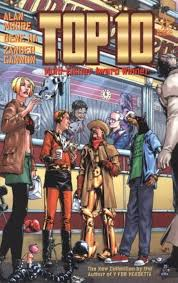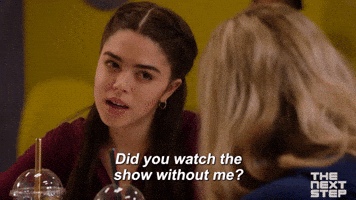Damnit. What you just wrote about Kirby and Moore is a really good counter argument. Let me mull that for a bit.
If you are interested in a contemporary comic that runs with the points you are making, then I highly recommend Zdarsky's comic Public Domain. It's one of the best metanarrative comics that takes on the business of making comics.
Speaking of Public Domain characters, I'm reading Jim Krueger and Alex Ross' Project Superpowers largely based on my love of Earth X, which I believe is the most important, and most overlooked, Marvel comic miniseries.
It's a really good story, but it is, in part, difficult to get into because I don't know the characters the way I do Marvel and DC characters, and I haven't watched how they have evolved over the decades. I'll update my thoughts when I finish it, as I have mixed feelings about IPs, and most notably Disney - we all can name at least one Disney story (not just one story from a property currently owned by Disney) that played a formative role in shaping who we are.
We are often tasked with separating the art from the artist. Is the same not also true from the art and the IP? I don't know. But I do know that I wouldn't be the person that I am today - and I probably wouldn't have taken on a career that I have shaped around the importance of storytelling - without consuming Disney stories.
Andor works as a non-Star Wars property, but placing the story inside a modern myth enriches all other Star Wars projects. And to go back to your point about The Wire, it may not exist within a superhero universe, but it is still a part of the Time Warner IP. Does it's placement outside of that universe make the endeavor more noble? I don't know.
Yeah, once you betrayed your comic book nerdom by namedropping Karen Berger, the Kirby-Moore one-two punch became a no-brainer.
Can we separate the art from the IP? That's a provocative formulation. My first instinct would be to say that Andor and other "prestige" IP seek to cultivate a quality of consumer demand that executes that very separation on behalf of Disney. It's one reason why a message board of college graduates and post-graduates can wax philosophical about Rogue One and Andor for pages on end. The whole "modern mythology" argument has a long pedigree in mass culture--the studios encouraged similar arguments in the 1930s. Studio manufacturing plants were not these management-dominated hybrids of craft workshops and assembly-line production. No sir: they were "dream factories."
Marvel's version of the studio-era dream factory might very well be Stan Lee's Bullpen. What a place to work!
I think your counterpoint about The Wire is a good one. In my opinion, part of what it points towards is how corporations expediently define prestige to exploit their unique batch of resources.
To wit, Simon could never get Disney to greenlight The Wire because gritty urban crime shows do not really burnish the Disney brand. But HBO did finance The Wire because the show flattered its burgeoning corporate self-conception as the home of sweeping prestige television. (When movies mattered, HBO wasn't called Home Box Office for nothing). For HBO, what gives The Wire its prestige is Simon's growing reputation as an auteur showrunner. In part, that reputation borrows from more traditional 20th c. views on art, including the "completeness" and integrity of the show as an artifact. In short, no, you can't have a spinoff called David Simon's Tales from the Wire or Bubbles on the Loose. But HBO can get into the David Simon business, and thus finance subsequent 'auteur' shows like those about housing and porno. David Simon is an imperfect approximation of IP because HBO doesn't own him; instead, it has to treat him well to maintain his cooperation. The same goes for studios and star actors or hot-shit directors.
In the 1990s and 2000s, HBO built its brand on making TV auteurs. But that's not Disney's style. When Disney wants to go prestige, it has to fit this imperative within wider IP strategies. And so it gives Gilroy permission to do prestige Star Wars and kills two birds (prestige! IP!) with one stone (Andor!).
In sum, Simon is implicated in the corporate malarkey at HBO, but in terms that he's better able to control. If HBO cuts loose Simon, he takes the Simon brand elsewhere. If Disney cuts loose Gilroy, Andor stays with Disney.
Top10 wasn't one of my go-to Moore comics. I like Miracleman, the 80s DC stuff, From Hell and, especially Providence--what a mindfuck that last one was.



